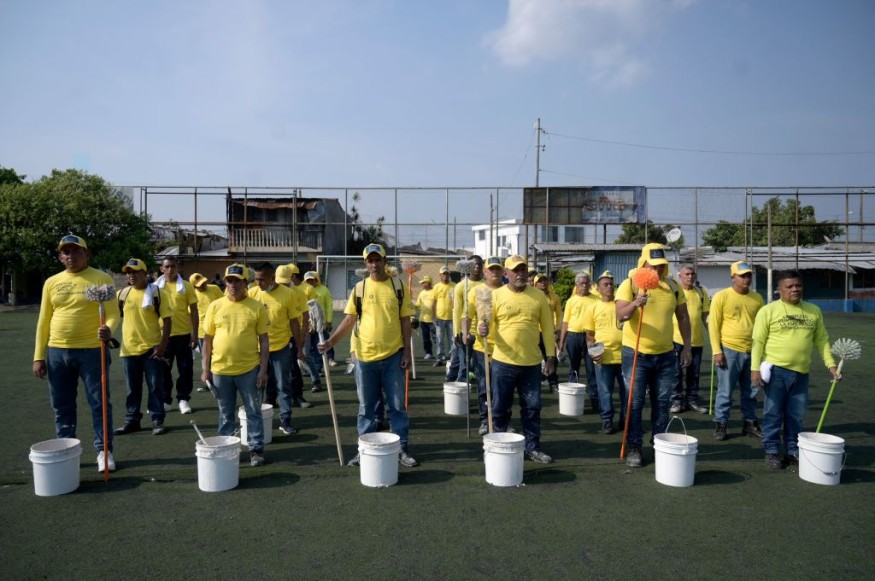El Salvador Extends State of Emergency as It Continues Its Gang Crackdown

El Salvador has extended the state of emergency in the country as voted by its Congress in the request of President Nayib Bukele to extend an anti-gang emergency decree for another 30 days.
The state of the emergency measure was approved with 67 votes in the 84-seat Congress as the country continues its gang crackdown efforts, according to a Miami Herald report. Bukele's party holds a majority in El Salvador's Congress.
The president of El Salvador has used emergency powers to round up about 16,000 suspected gang members after a series of killings in March. In addition, Bukele has established other measures, including lengthened sentences and reducing the age of criminal responsibility to 12.
El Salvador's Congress has also allowed prison sentences of 10 to 15 years for news media that reproduce or spread messages from the gangs, prompting concerns from freedom groups.
Gang members who are held at Salvadoran prisons have been placed under reduced food rations, denied mattresses, and frog-marched around.
El Salvador State of Emergency
On March 26, El Salvador reported 62 homicides, which is the most recorded cases on any single day since the country's bloody civil war in 1992, according to an Aljazeera News report.
Mara Salvatrucha, also known as MS-12, and Barrio 18 gangs were blamed for the spike in violence.
Bukele then took to Twitter later that night to pressure Salvadoran lawmakers to approve a "state of exception," which they approved of in the early hours of March 27.
The state of emergency implementation formally suspends "any residual hint of civil liberties in the nation" where the president self-proclaims to be the "coolest dictator." It also eliminates the right to association and legal defense while also increasing the period of detention without charge from 72 hours to 15 days. The state of emergency also authorizes the state to spy on private correspondence without any court order.
Bukele tweeted on March 31 that food ration in Salvadoran prisons had been curtailed and that 16,000 prisoners had "not left their cells or seen the sun."
El Salvador Gang Crackdown
The United Nations Human Rights Office has scrutinized the gang crackdown by El Salvador's government after declaring a state of emergency.
U.N. Human Rights Office reported that police and military forces used excessive force against gang members, noting that more than 5,700 people have been detained without an arrest warrant, according to a Voice of America News report. Some have reportedly been subjected to cruel and inhumane treatment.
Human rights spokeswoman Liz Throssell said certain amendments to criminal law and procedure seem to breach international law and weaken due process guarantees.
She noted criminal trials can now be held in absentia, wherein alleged gang members were presided over by so-called "faceless" judges.
Throssell said that teenagers associated with gangs who are found guilty of serious offenses may now be sentenced as adults. She added that those aged 12 to 16 must now serve 10-year terms of imprisonment instead of seven years, while those aged 16 to 18 years must serve 20-year terms.
READ MORE : El Salvador Travel: Best Tourist Attractions to Visit as the Central American Country Sees a Tourism Boom
This article is owned by Latin Post.
Written by: Mary Webber
WATCH: El Salvador Claims State Of Emergency Over Deadliest Day In 30 Years - from NBC News
Subscribe to Latin Post!
Sign up for our free newsletter for the Latest coverage!
© 2026 Latin Post. All rights reserved. Do not reproduce without permission.















